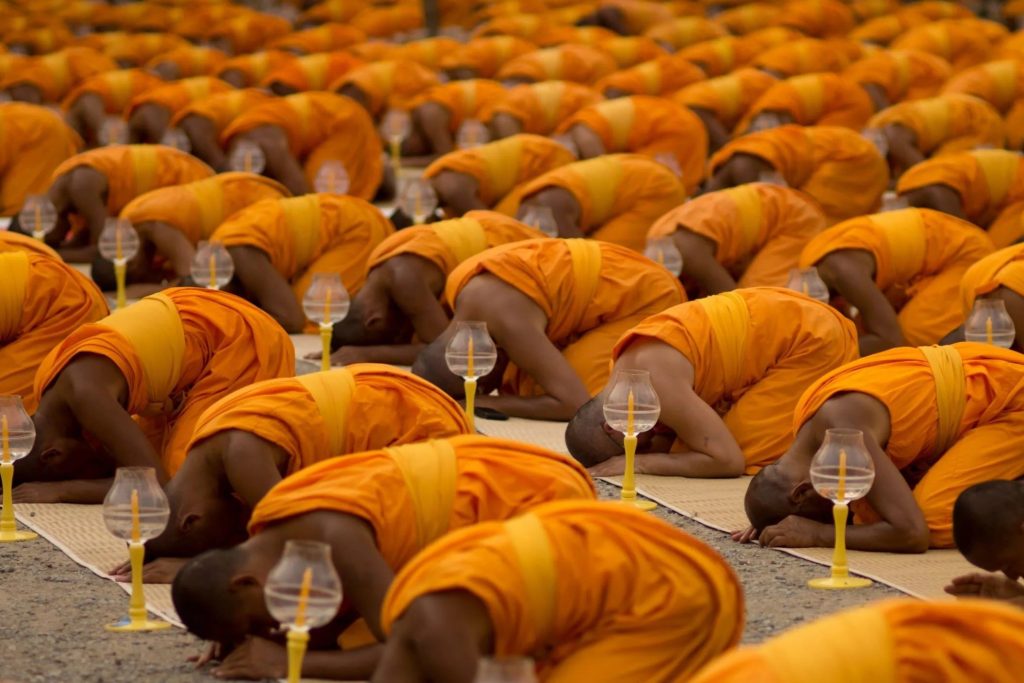Imagine stepping into a world where time folds in on itself, where the end is just the beginning, and enlightenment is the ultimate prize. Nirvana Day stands as a solemn yet uplifting beacon in the Buddhist calendar, marking not just the death but the ultimate liberation of Gautama Buddha from the cycle of birth and rebirth. This day, steeped in reverence and reflection, transcends mere historical commemoration; it embodies the very essence of Buddhist philosophy – the quest for Nirvana. With traditions diverging on the exact date, Theravada Buddhists and Mahayana Buddhists observe this sacred day at different times, highlighting the rich tapestry of Buddhist thought and practice. As followers ponder the Buddha's teachings, Nirvana Day becomes a mirror reflecting the multifaceted journey towards enlightenment. Isn't it fascinating how a single day can capture the profound complexity of a spiritual journey that has captivated millions for centuries?
Key Takeaway
Timeline
Day Activities
-
Meditation Sessions: Nirvana Day kicks off with serene meditation sessions. Participants sit in silence, diving deep into their thoughts, reflecting on Buddha's teachings. It's a time for quiet introspection, where every breath brings them closer to understanding the essence of Nirvana. These sessions aren't just about sitting still; they're journeys within, exploring paths to inner peace and enlightenment.
-
Dharma Talks: Engaging Dharma talks are a staple, where monks and lay teachers share insights on Buddha's journey to enlightenment and his final entry into Nirvana. These talks serve as a beacon, guiding attendees through the complexities of life's suffering, the impermanence of existence, and the pursuit of spiritual liberation. They're not lectures but conversations with the soul, sparking moments of epiphany and deeper understanding of the Buddhist path.
-
Acts of Kindness: On this day, Buddhists engage in various acts of kindness, embodying the compassion and selflessness taught by Buddha. From feeding the hungry to helping out at animal shelters, every act is a step towards personal and collective enlightenment. It's not just about doing good deeds; it's a manifestation of the Buddhist principle of loving-kindness, making the world a slightly better place, one act at a time.
Why We Love This Day
-
Reflecting on Buddha's teachings: Nirvana Day serves as a poignant reminder for Buddhists and non-Buddhists alike to pause and ponder over Gautama Buddha's profound teachings. It's a day when folks from all walks of life can take a moment to consider the values of compassion, mindfulness, and the pursuit of enlightenment. Through meditation, prayer, and reading scriptures, many find a deeper connection to their spiritual journey, making this day a beacon of introspection and personal growth.
-
Renewing commitments: On this day, many seize the opportunity to recommit themselves to the path of Buddhism, aiming for a life filled with peace, love, and understanding. It's like hitting the refresh button on your spiritual browser, clearing out the clutter of daily life to focus on what truly matters. Whether it's through acts of kindness, participating in community services, or simply dedicating more time to meditation, Nirvana Day inspires a renewal of vows to live a life in accordance with Buddhist principles.
-
Celebrating diversity within Buddhism: Nirvana Day highlights the rich tapestry of Buddhist traditions around the globe. From Theravada to Mahayana, each tradition offers unique perspectives and practices, yet all converge on this special day to honor the Buddha's final nirvana. It's a beautiful example of unity in diversity, showing us that despite different paths, the goal of enlightenment and the cessation of suffering is a common thread that binds all Buddhists together. This diversity not only enriches the Buddhist community but also offers a wide array of practices and teachings for anyone interested in the Buddhist way of life.
Past & Future Dates
| Month | Day | Year |
|---|---|---|
| FEBRUARY | 8 | 2022 |
| FEBRUARY | 8 | 2023 |
| FEBRUARY | 8 | 2024 |
| FEBRUARY | 8 | 2025 |
| FEBRUARY | 8 | 2026 |
| FEBRUARY | 8 | 2027 |
| FEBRUARY | 8 | 2028 |
FAQ
What is the meaning of Parinirvana Day?
Parinirvana Day marks a significant festival in some Mahayana regions, commemorating the Buddha's death. It symbolizes the moment when the Buddha, also known as the enlightened one, reached the age of 80 and entered Parinirvana, an ultimate state of Nirvana, after his death.
What do they eat on Nirvana Day?
On Nirvana Day, the focus is on simple, reflective, and vegetarian meals. One popular recipe enjoyed by Japanese Buddhists includes fresh udon noodles, highlighting the day's emphasis on uncomplicated and mindful eating.
Is Nirvana Day a religious holiday?
Yes, Nirvana Day is observed as a Mahayana Buddhist holiday primarily celebrated across Asia, including countries like Bhutan. It marks the occasion when the Buddha attained complete Nirvana after his physical body's death.
What is the Buddhist holiday in February?
In February, specifically on the 8th or 15th, Buddhists observe Parinirvana Day. Also known as Nirvana Day or Nibbāna Day, this holiday honors the Buddha's death and is celebrated across East Asia, the Philippines, and Vietnam, though the exact date may vary.
